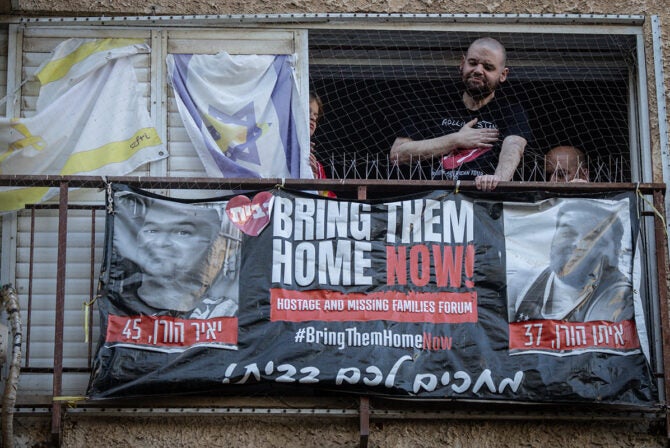I live in East Meadow, a town in Nassau County, Long Island. My husband and I found this town somewhat accidentally eight years ago, but we were instantly attracted. Recently, we sold our house and purchased something larger to accommodate our growing family. We chose to stay in the same area, because we still love it here. The town offers almost everything we wanted…except kindergarten.
East Meadow School District is one of seventeen in all of New York State that only offers part-time kindergarten. I’ve heard the term “half-day” used frequently, but it’s a misnomer. Our program is currently 2.5 hours shorter than any school day I’ve ever known. In New York, kindergarten is not mandatory, so each district can do whatever they’d like. Over the past several years, I’ve watched all the surrounding school districts realize that they needed to go beyond the barest legal requirements for instruction. One by one, I watched them all implement full-day kindergarten programs, with the truly proactive offering additional years of early childhood education. Though plagued with budgetary woes and bureaucracy, I watched New York City roll out pre-kindergarten. Granted, the city’s system is imperfect. Even so, NYC is still serving more than 53,000 children this year.
If they can do it, why can’t we?
READ: And I Though Finding a Kindergarten in New York was Hard
Kindergarten is an important issue for my entire community, regardless of whether or not they are parents of school-aged children. There is a large population of retirees in my town, mostly couples who have raised their families here. When they decide to downsize, it’s in their best interests if our property values are high. Local sellers are competing with neighboring towns for a limited group of qualified buyers. In a town where the median home price is more than $400,000, many families are unwilling, or unable, to pay for something other nearby districts are offering for free. Without full-day kindergarten in our schools, the pool of potential buyers shrinks exponentially.
I’ve heard it said that this proposal is fueled by families with two working parents who are unwilling to pay for childcare. I won’t deny that daycare is a huge expense, for my family and others like us. Yet my opinion on the importance of kindergarten would be the same whether or not I worked outside the home. This issue is not a local battleground for Mommy Wars; it’s about our children’s educational foundation. Anyone who’s remotely familiar with Common Core knows that the expectations of children are high. And despite the Herculean efforts of notable Long Island administrators, it isn’t going anywhere anytime soon. Attempting to cram the new curriculum into an abbreviated day is not an educationally sound decision; that approach is setting our children up to fail. I don’t want to see my daughters or their classmates drowning in this sea of new requirements. A true kindergarten program would help us ensure that all our kids can swim.
READ: The Surprising Reason My Son’s Kindergarten Teacher Called
Detractors like to shout, “If you want it, then pay for it yourself!” If this initiative doesn’t pass, I will. It means that much to me. My husband and I are able to pay tuition for private full-day kindergarten. But I understand that this is a privileged position, and not everyone in my community is as fortunate. Children from families with fewer resources are not being given the foundation that they need, and that’s unfair. Perhaps it’s naïve, but I still believe that all members of a community have a responsibility to each other. When did access to “free and appropriate” public education become a private problem?
When the campaign for full-day kindergarten started to gain momentum this past fall, the school board commissioned a fact-finding committee to evaluate our program. In January, they revealed that 45% of current kindergartners needed remediation. Yet when they examined 4th grade state test scores, they reported that our children scored comparably to children in neighboring towns.
READ: The Tooth Fairy is a Drug Pusher and Other Stories From Kindergarten
On the surface, it might appear that part-time kindergarten has no impact on later achievement. Yet upon closer scrutiny, it appears that committee did not statistically control for the students who had attended full-day schools. These children accounted for approximately 20% of the class. Additional children who attended part-time kindergarten in conjunction with private enrichment programs were not even counted. No comparison was made between the children’s scores based on kindergarten attendance. Much more research has to be done before we can confidently smile and say that our children are doing fine.
READ: Why I Had To Pull My Son Out of Jewish Day School
And it’s about more than just testing. These are children, young children, who need time for other things. They crave exposure to music and art and libraries. They need time for socialization and sharing meals and physical activity. They are not getting these opportunities. I do not fault the teachers; it all can’t be squeezed into two and a half hours. But in the current part-time program, all the things my generation loved about kindergarten have been thrown away.
On May 19, we’ll vote on our school budget, and full-day kindergarten will be added as a separate proposition. I can only hope that my community does the right thing. Our decisions affect our children’s futures.. Their first taste of school should not be bitter; unpleasant flavors linger in a child’s memory. Instead, it is our job to ensure that early childhood education, and the years that follow, are sweet.








